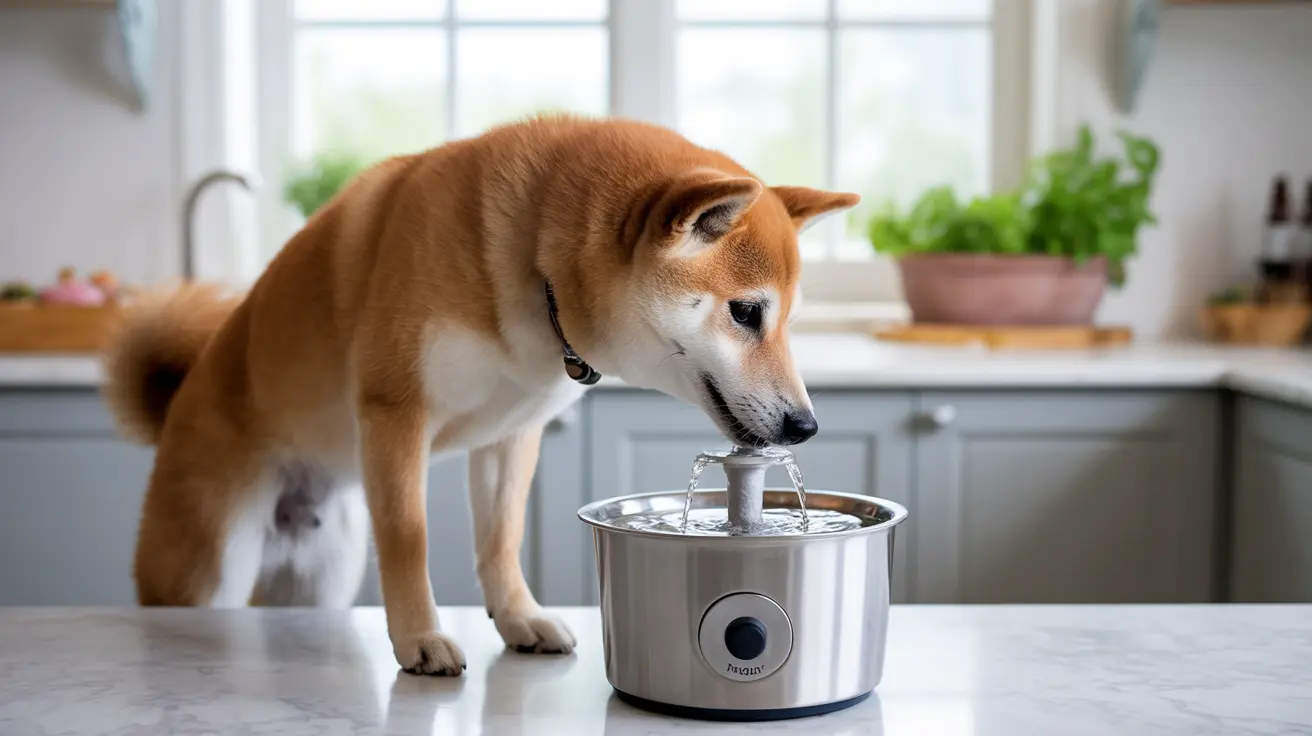As a dog owner, you've probably wondered about the safety of giving your furry friend tap water. While most municipal tap water is generally safe for dogs, there are important factors to consider that could affect your pet's health and well-being. This comprehensive guide will help you understand the safety of tap water for dogs and make informed decisions about your pet's hydration needs.
Understanding the quality and potential risks of tap water is crucial for maintaining your dog's health. Let's explore what you need to know about tap water safety, common contaminants, and how to ensure your dog stays properly hydrated with safe drinking water.
Understanding Tap Water Quality for Dogs
Municipal tap water in the United States typically meets EPA safety standards for human consumption. However, these standards don't specifically account for dogs' unique sensitivities and health needs. While most healthy dogs can safely drink tap water, certain contaminants may pose risks to some pets, particularly those with existing health conditions or compromised immune systems.
Common Tap Water Contaminants That May Affect Dogs
Chemical Contaminants
Tap water often contains chemicals used in the treatment process, including:
- Chlorine and chloramines for disinfection
- Fluoride for dental health
- Industrial chemicals and pharmaceuticals
- PFAS (per- and polyfluoroalkyl substances)
Physical and Biological Contaminants
Other potential contaminants include:
- Heavy metals (lead, copper, zinc)
- Bacteria and parasites
- Mineral deposits (calcium, magnesium)
- Microplastics
Signs Your Dog May Be Sensitive to Tap Water
Watch for these symptoms that might indicate your dog is reacting to tap water:
- Gastrointestinal issues (vomiting, diarrhea)
- Increased thirst or changes in drinking habits
- Skin irritation or itching
- Urinary problems
- Lethargy or behavioral changes
Safe Water Alternatives for Dogs
Filtered Water
Using a water filter can remove many common contaminants. Consider:
- Carbon filters for chlorine and organic compounds
- Reverse osmosis systems for comprehensive filtration
- Water pitcher filters for basic protection
Bottled and Spring Water
While more expensive, these options can provide peace of mind:
- Natural spring water with beneficial minerals
- Purified bottled water for sensitive dogs
- Distilled water (short-term use only)
Best Practices for Providing Safe Water to Dogs
Follow these guidelines to ensure your dog's water is safe:
- Clean water bowls daily with soap and hot water
- Change water at least once daily
- Monitor your local water quality reports
- Consider using a pet water fountain with built-in filtration
- Consult your veterinarian about specific water needs for your dog
Frequently Asked Questions
Is it safe for my dog to drink regular tap water from the faucet?
Yes, tap water that meets municipal safety standards is generally safe for most healthy dogs. However, if you have concerns about local water quality or your dog has specific health issues, consult your veterinarian.
What contaminants in tap water could potentially harm my dog's health?
Common harmful contaminants include chlorine, heavy metals, bacteria, parasites, and industrial chemicals. Some dogs may be more sensitive to these substances than others.
How can I tell if my local tap water is safe for my dog to drink?
Review your local water quality reports, which are usually available online or from your water utility company. You can also have your water independently tested, especially if you use well water.
Should I use filtered or purified water instead of tap water for my dog?
Filtered water can be a good option, especially if you have concerns about tap water quality. It removes many common contaminants while retaining beneficial minerals.
What symptoms indicate my dog might be reacting to contaminants in tap water?
Watch for symptoms such as vomiting, diarrhea, increased thirst, changes in urination habits, skin irritation, or unusual lethargy. If you notice these signs, consult your veterinarian.
Conclusion
While tap water is generally safe for most dogs, being informed about water quality and your pet's specific needs is essential. Monitor your dog's reaction to tap water, stay aware of local water quality issues, and consider filtration if needed. When in doubt, consult with your veterinarian about the best water options for your pet's specific health needs.






